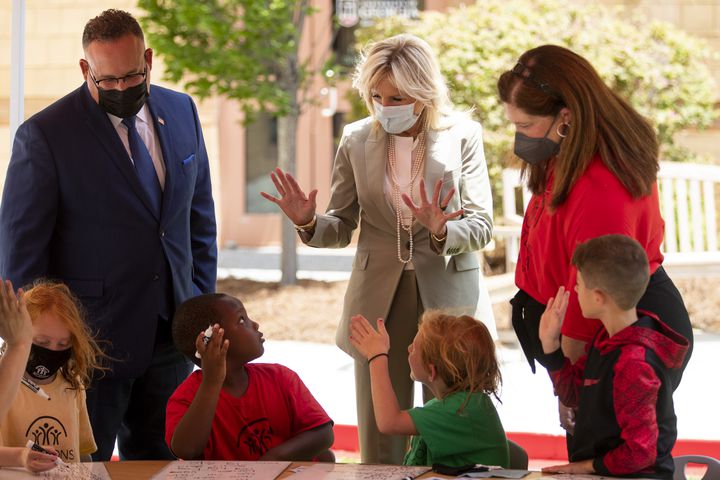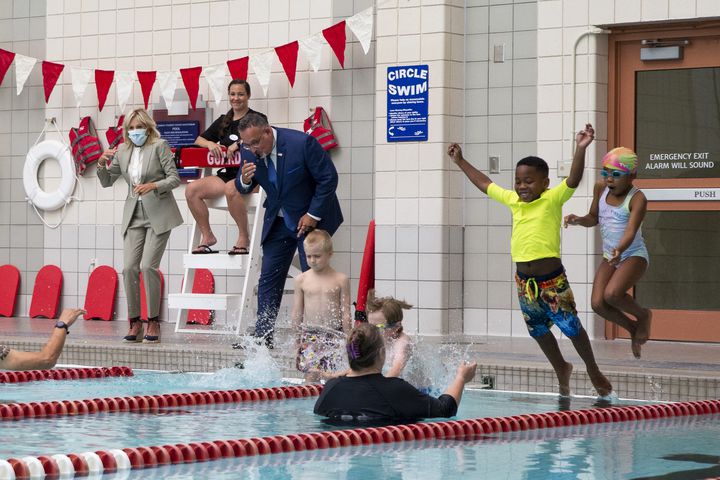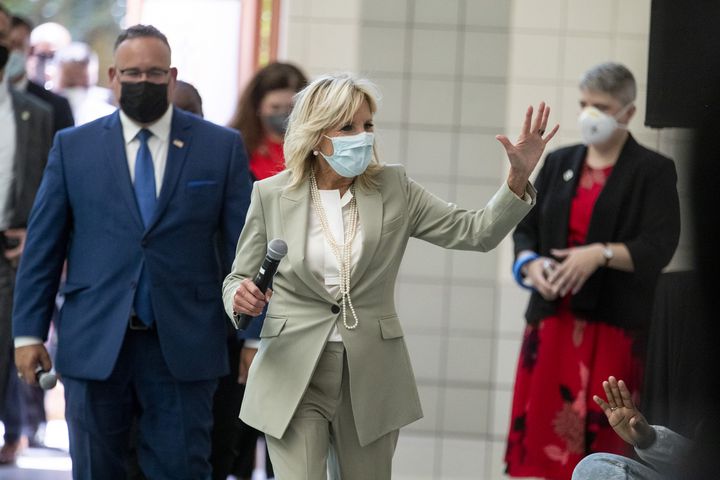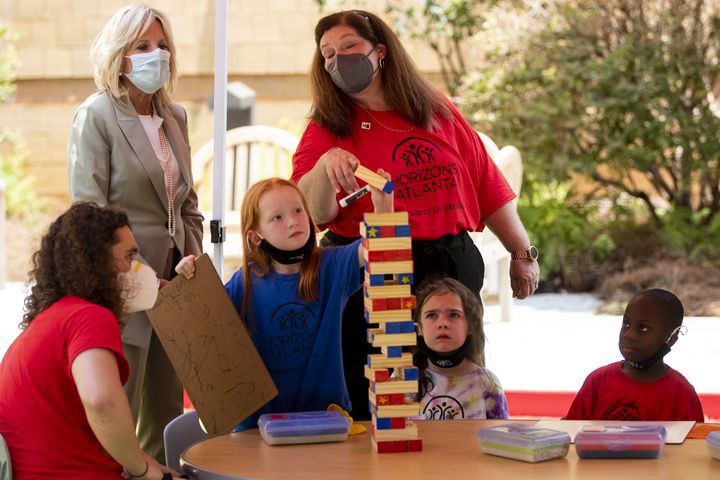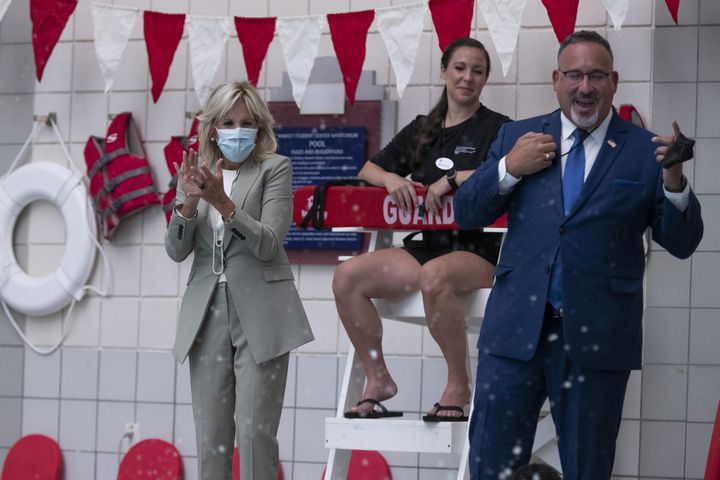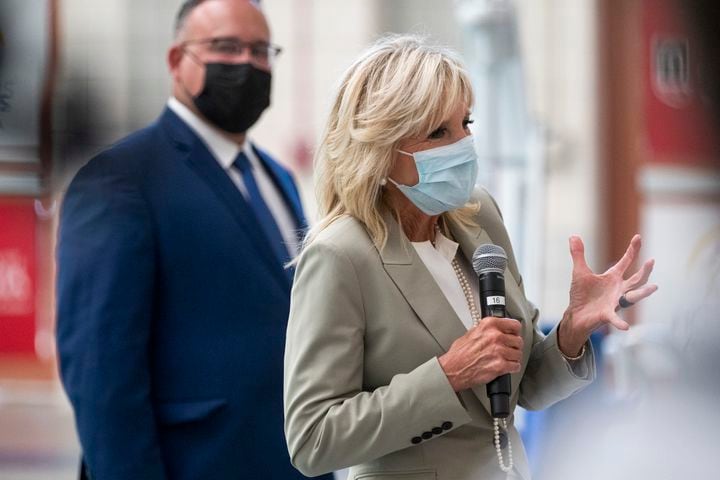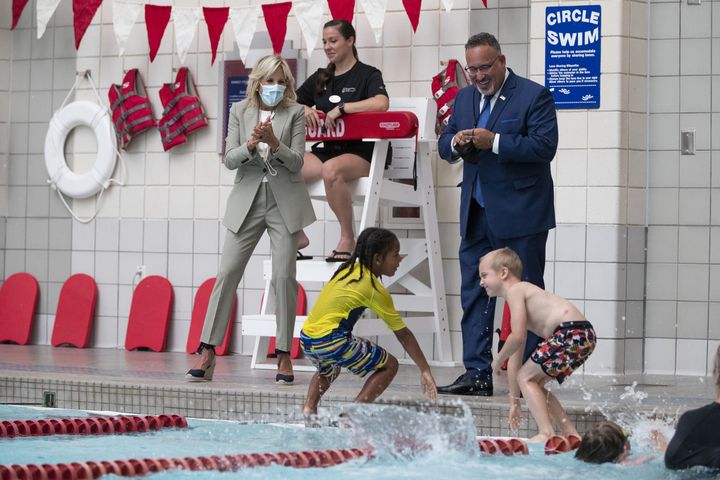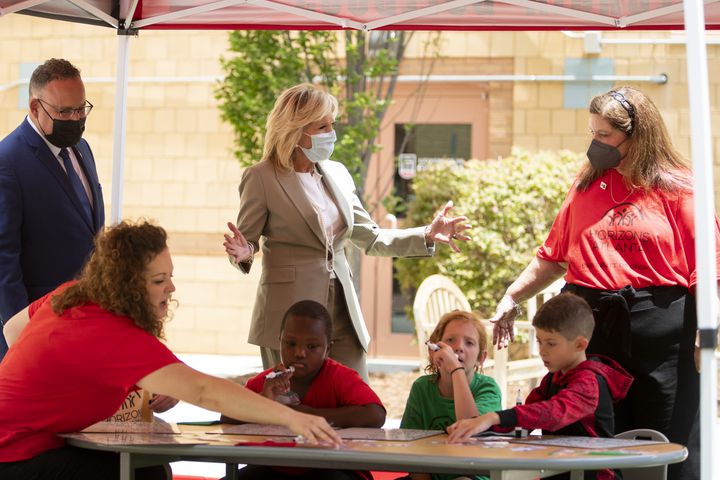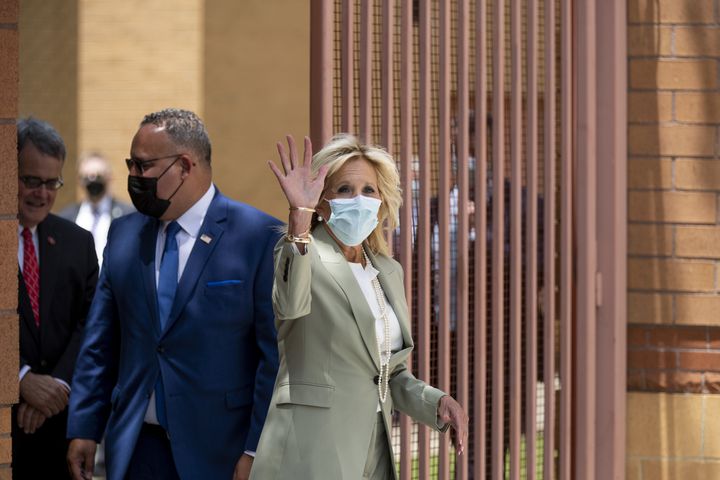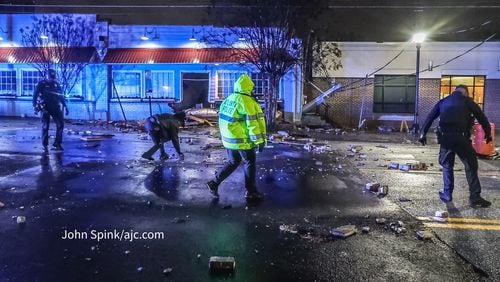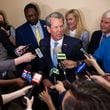ATHENS — First lady Jill Biden visited a summer program for children on Thursday to highlight how federal aid is helping students make up for pandemic losses.
She met with rising second graders working on their language arts and math skills, and some taking swim lessons at the University of Georgia’s Athens campus. Students from Barnett Shoals Elementary School participate in the Horizons program for the summer.
The goal of the six-week program: Build up the confidence of students, in addition to practice skills like reading and swimming.
“The bottom line — at least for me as an educator — the one thing I try to give the students is confidence,” Biden said to parents, referencing her continued career teaching English at a community college. “I think that’s exactly what Horizons does.”
Hours before the Georgia visit, the White House announced that President Joe Biden tested positive for COVID-19. The first lady tested negative, a spokesperson said, and made trips to Michigan and later to Georgia.
The visits were part of a multi-state “summer learning tour” for Biden and U.S. Secretary of Education Miguel Cardona. Biden spent a few minutes with the Georgia students, asking them about their activities, before thanking parents for prioritizing education.
Horizons received $192,500 per year for three years, starting this year, through a Georgia grant program to provide and expand programming to more youths during the summer and year-round.
The funding means a lot to Horizons Atlanta, said director Alex Wan — and so does a visit from Biden and Cardona.
“It reinforces the message we’ve been telling them: ‘There are people who want you to succeed,’” he said. “Now we can say, ‘All the way to the White House.’”
Georgia received $4.2 billion in federal pandemic aid through the American Rescue Plan. About a quarter of that funding is going toward academic recovery. And $40 million is going to more than 100 organizations across the state operating summer and after-school programs.
A recent report from the Northwest Evaluation Association (NWEA), a nonprofit that offers assessments to schools, suggests it could take three to five years for students to make up academic ground lost to the pandemic. For some students and subjects it could take even longer. Students at low-income schools and students of color have been disproportionately impacted.
Schools across the nation have received billions of dollars in federal pandemic aid over three years in an effort to combat those challenges.
School districts in metro Atlanta have also enhanced summer programs using federal funds. In Gwinnett County, the state’s largest district, for example, enrollment in summer programs tripled to 25,000 in 2021. In many districts, summer programs focus on remediation to make up lost learning time.
